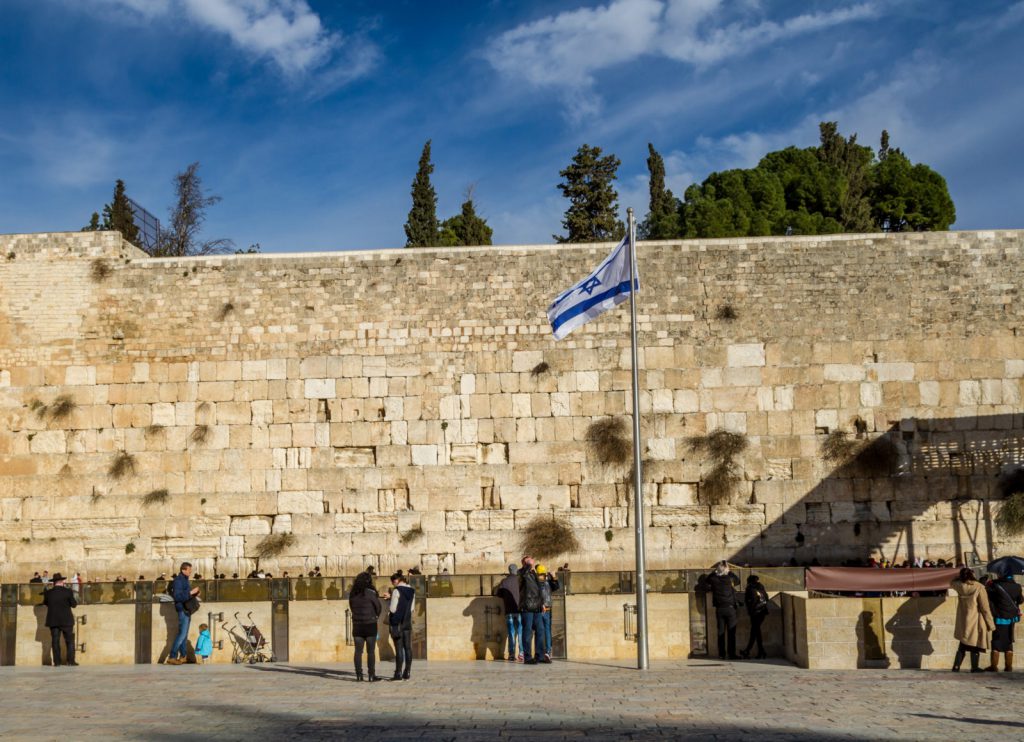
Published December 14, 2017
I’ve been quite critical of Donald Trump, in part because of his sustained attacks on reality. But in the case of his decision last week to recognize Jerusalem as the capital of Israel, the president did the opposite: He recognized reality, even as his critics insist that we inhabit the world of make-believe.
Jerusalem is the de facto capital of modern-day Israel. It has been since the nation’s establishment in 1948. Today it’s the home of the Israeli parliament and Supreme Court, the residence of both the president and prime minister, the location of many government ministries.
It’s worth noting here that Jerusalem was a divided city from 1948-1967, with the eastern section annexed by Jordan. The city was reunited after Israel’s victory in the Six Day War. While under Arab rule, East Jerusalem — which includes Judaism’s holiest monument, the Temple Mount — was entirely closed to Jews. Since Israel reclaimed control of the entire city, it has been open to people of all faiths.
Jerusalem was the capital of ancient Israel as well, the center of the Jewish people’s spiritual and national life since King David made it the capital of his kingdom 10 centuries before the birth of Jesus – and more than 1,500 years before there even was Islam. Jerusalem has been the capital of only one sovereign nation in history: Israel.
Despite this history, we’ve been told we need to accept the fiction that Jerusalem is not the capital. The argument has been that if the United States did so, it would undermine the Israeli-Palestinian “peace process” and America’s role as an “honest broker.”
Set aside the fact that the “peace process” is moribund. Set aside, too, the fact that the main concern of many Arab nations isn’t Israel but Iran; not the lack of a Palestinian state but the establishment of a “Shiite Crescent.”
In his speech recognizing Jerusalem as the capital, President Trump embraced a two-state solution. He did not refer to Jerusalem as an “undivided city,” saying, “We are not taking a position of any final status issues, including the specific boundaries of the Israeli sovereignty of Jerusalem, or the contested borders. Those questions are up to the parties involved.”
For the record, on multiple occasions – in 2000, 2001, and 2008 — Israel offered the Palestinians an independent state that included the division of Jerusalem. Each time it was met by Palestinian rejectionism. Which really gets us to the heart of the problem.
To this day, Palestinian leaders have never made their own inner peace with the existence of a Jewish state. Even during the much-celebrated signing of the Oslo Accords in 1993 – on the very day the accords were signed, in fact – Yasir Arafat addressed the Palestinian people on Jordanian television telling them that this was the first step toward the phased elimination of Israel. The Palestinian hatred for Israel is implacable. Refusing to recognize Jerusalem as the rightful capital has done nothing to change that; it probably emboldens that hatred, convincing Palestinians that the West will indulge in delusion and self-delusion in order not to derail the chimerical “peace process.”
Not recognizing Jerusalem as Israel’s capital is of a piece. Israel has been made to live in an imaginary world created by its enemies. In this imaginary world it is Israel, not its enemies, that stand in the way of peace. It is Israel, not its enemies, that is the aggressor nation. It is Israel, not its enemies, that is unwilling to trade land for peace. (Israel has proved repeatedly that it will sacrifice land for peace, including in 1967, when it offered to return all the land it won in the war that year in exchange for peace and normal relations – an offer summarily rejected by Arab leaders who met in Khartoum. It did so again in 1979, when it returned to Egypt the Sinai Desert in exchange for Egypt’s recognition of Israel and normalized relations; and also in 2005, when Israel turned Gaza over to the Palestinians, only to be shelled by thousands of rockets and mortar attacks.)
Until last week, Israel was not accorded what every other sovereign nation has been granted: recognition of its capital. President Trump changed that, and he deserves credit for having done so. In the spirit of embracing reality rather than fantasy, let’s hope other nations recognize that Israel’s sacrifices for peace have exceeded those of any other nation; that Israel’s achievements and moral accomplishments are staggering; that in a region characterized by oppression and cruelty, Israel is a beacon for human rights, democracy, and pluralism; and that the Jewish state is among the most impressive and admirable in human history.
Humankind, T.S. Eliot wrote, “cannot bear much reality.” By recognizing Jerusalem as Israel’s capital, the United States helped the world bear a little more reality than it had.
Peter Wehner is a senior fellow at the Ethics and Public Policy Center. Previously he worked in the administrations of Ronald Reagan, George H.W. Bush, and George W. Bush.







